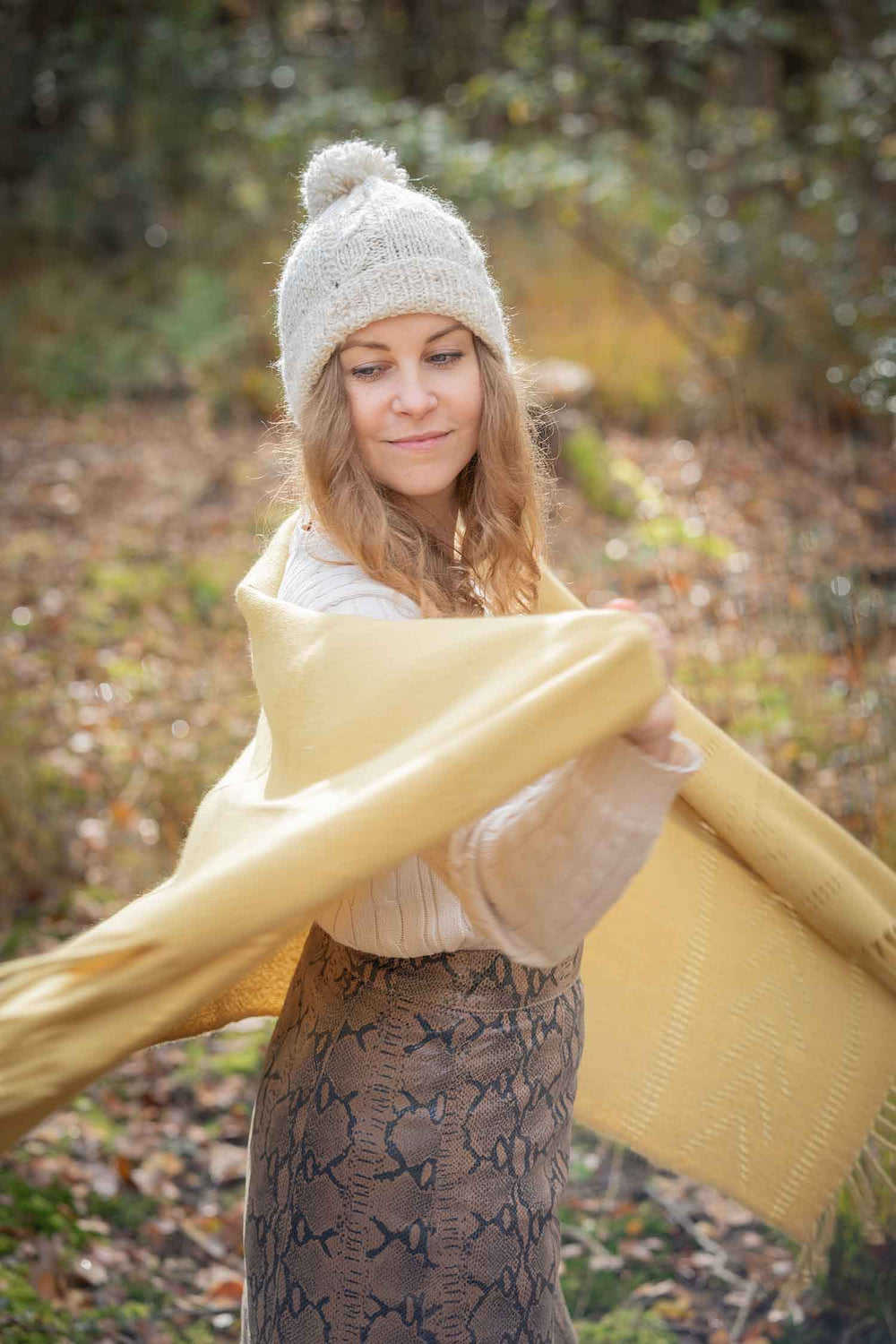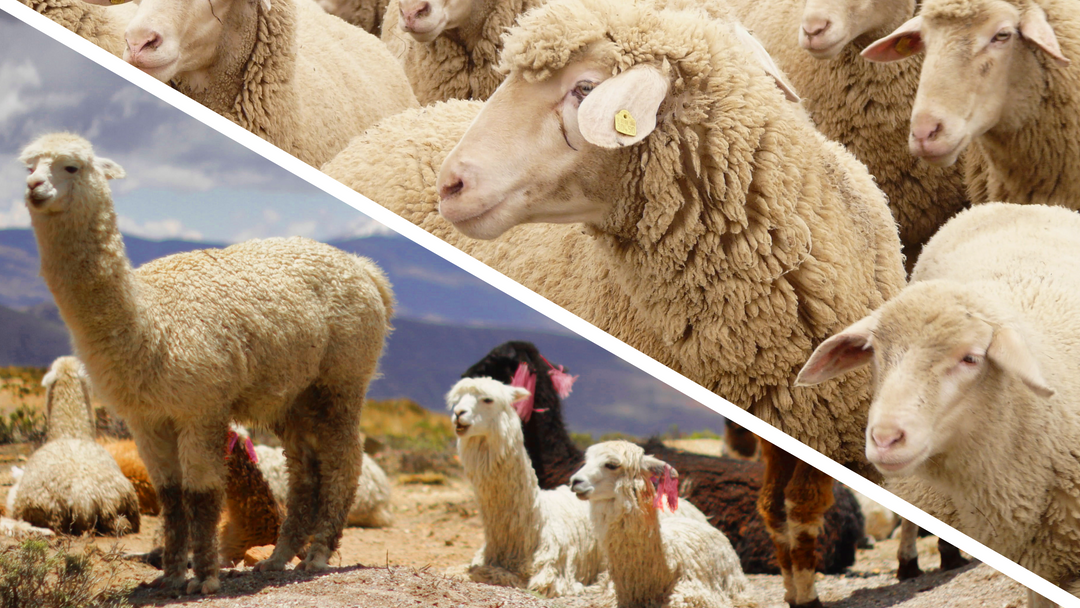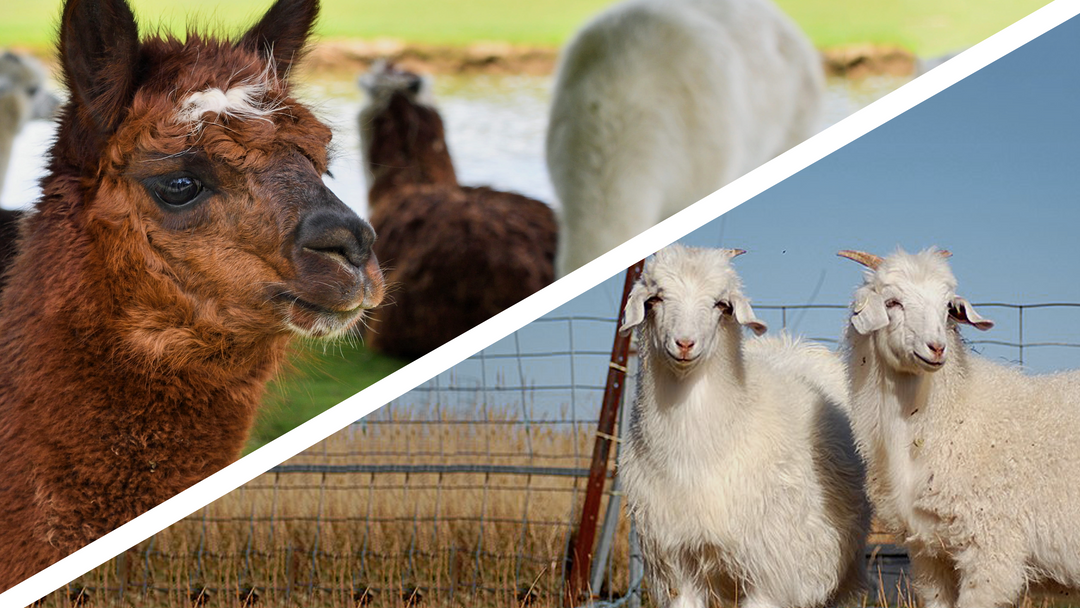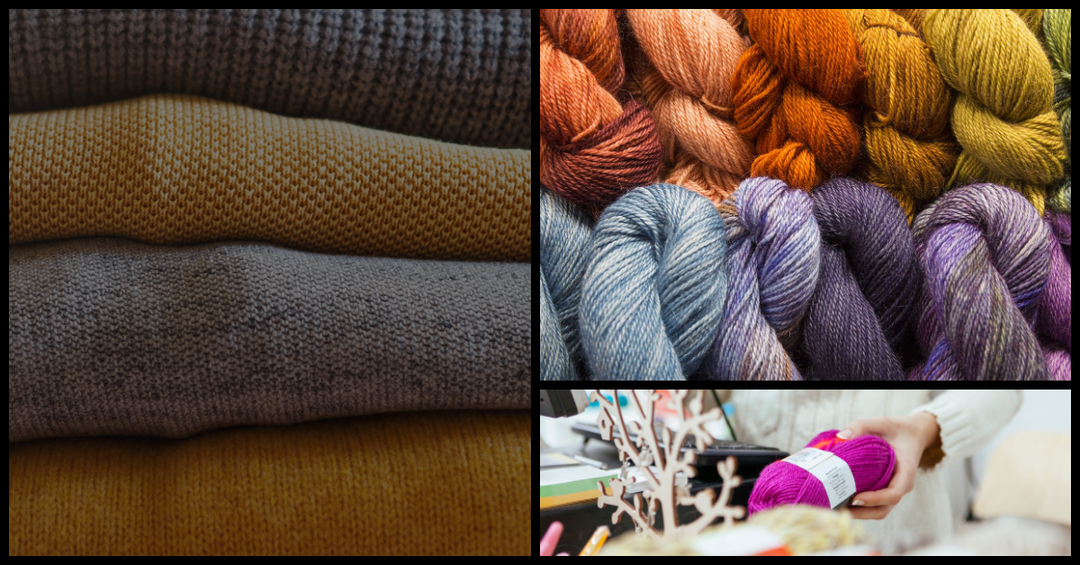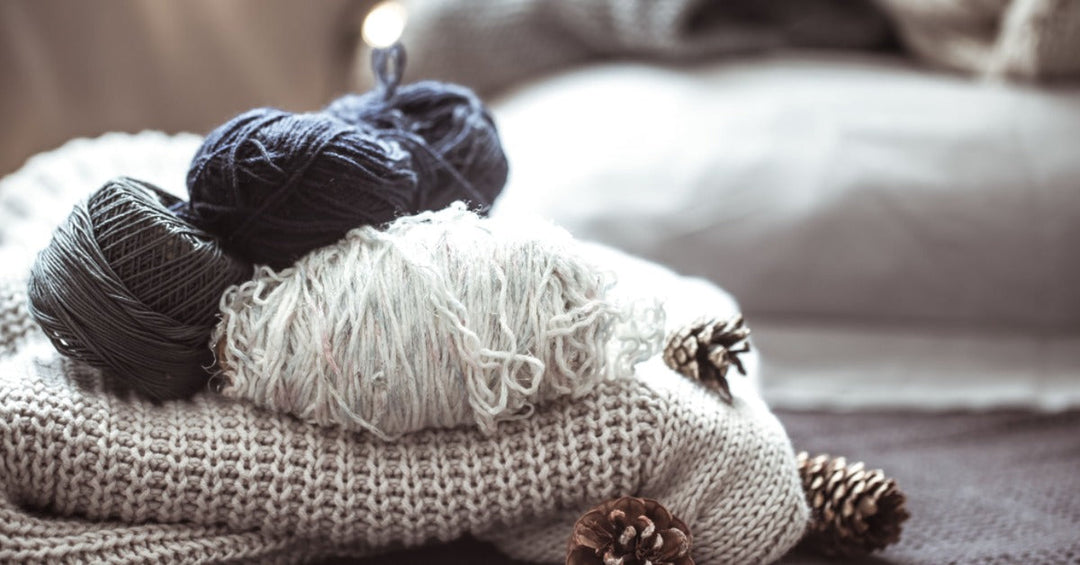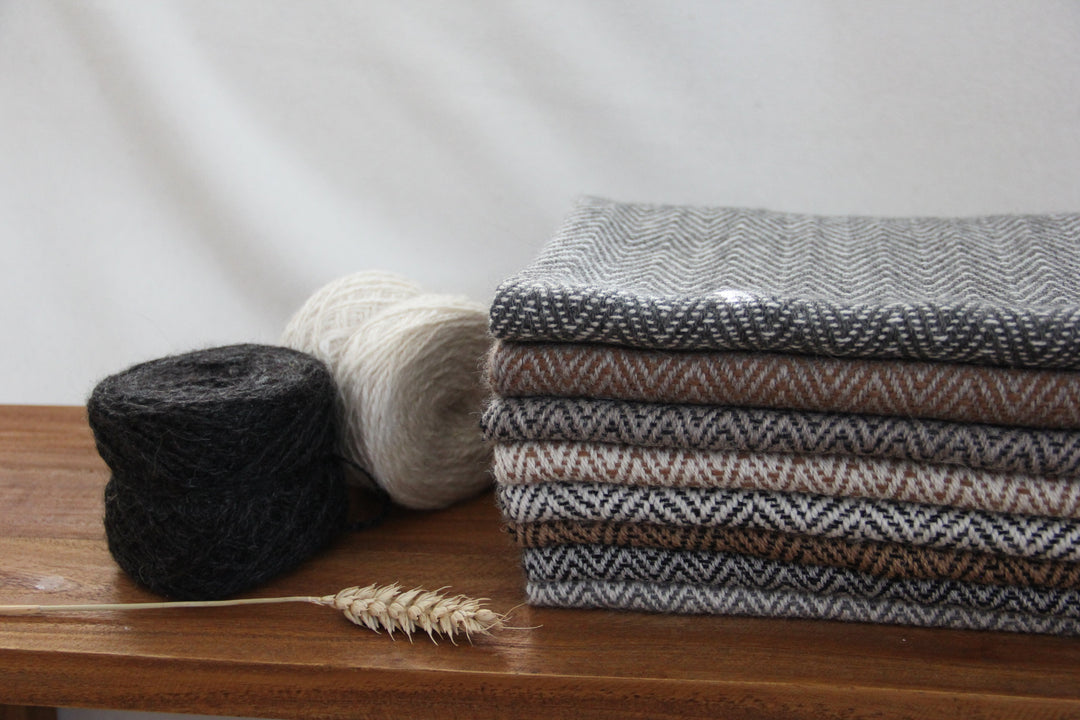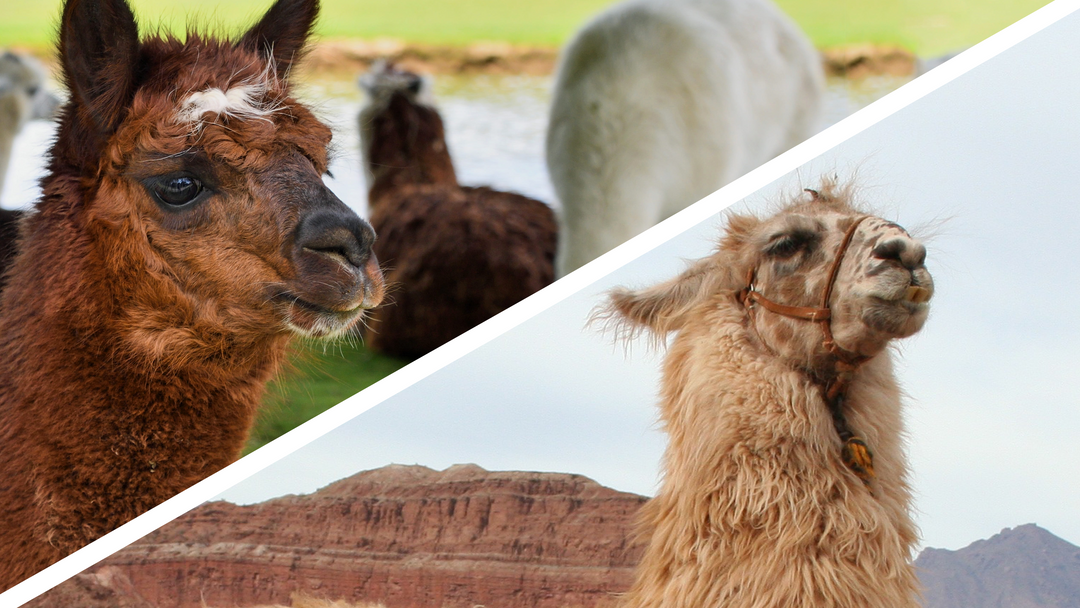The history and cultural significance of alpaca wool in the Andes

- Alpaca wool comes from the alpaca, a domesticated South American camelid species. It is found mainly in the high mountain regions of the Andes in South America, especially Peru, Bolivia and Chile.
- The use of alpaca wool in the Andean region dates back to ancient civilisations such as the Incas, who valued the fibre for its warmth, durability and softness. Alpaca wool played an important role in the daily life of Andean communities and was used for clothing, blankets and other household items. Only the most skilled artisans were allowed to work with alpaca fibres, as the delicate nature of the material required a high level of skill.
- In addition to its practical and cultural importance, alpaca wool has also played a role in the economic and social development of Andean communities. Raising and shearing alpacas has long been an important source of income and livelihood for many Andean families, and the sale of alpaca wool has also served as a way to connect these communities to the outside world.
The almost forgotten history of alpaca wool
Alpaca wool has been an important part of the traditions and cultures of the indigenous peoples of the Andes for centuries, especially the Aymaras, Quechuas and other peoples of the high plains. However, after the arrival of the Spaniards in the 16th century and the transmission of Spanish culture, alpaca wool was almost forgotten.During the colonial period and in the following centuries, alpaca wool was mainly used by the indigenous peoples of the Andes and was little known in the Western world. In recent decades, however, alpaca wool has placed itself in the focus of the western fashion industry and has become an important part of sustainable fashion.The rise of alpaca wool in recent years
The evolution of alpaca wool from a traditional fabric in the Andes to a luxurious material for the fashion elite can be attributed to a number of factors:
- The increasing demand for sustainable and ethically produced fashion products. Alpaca wool is a natural and environmentally friendly fibre that is also humanely harvested, making it attractive to consumers looking for more sustainable fashion options.
- The unique properties of the fibre itself. Alpaca wool is known for its softness, warmth and durability, making it a versatile and high-quality material for various fashion items. Additionally, alpaca wool is hypoallergenic and therefore suitable for people with sensitive skin.
- In addition to the high quality and versatility of alpaca wool, the sweet and adorable appearance of alpacas themselves has also contributed to its growing popularity. With their fluffy, soft fur and large, expressive eyes, alpacas have captured the hearts of people all over the world and have become a popular topic on social media. Their cute and cuddly appearance has also made alpaca wool products such as stuffed animals and blankets attractive to a wider audience, especially younger generations.
Overall, the evolution of alpaca wool from a traditional fabric in the Andes to a luxurious material for the fashion industry is the result of a combination of cultural, economic and technological factors.
The recognition of alpaca wool in the fashion industry

As alpaca wool gained popularity in international markets, it became an increasingly valuable material in the fashion industry. Its softness, durability and warmth have attracted designers and consumers around the world.Alpaca wool has been used in a variety of fashion products, from clothing and accessories to furniture and rugs. Its versatility and luxurious attributes have contributed to its increasing appearance in the luxury market and in advanced fashion trends. As a result, alpaca wool has gone from being a local treasure in the Andes to a global presence in the fashion industry.In addition, alpaca wool is softer and more durable than sheep's wool, making it ideal for people with sensitive skin or wool allergies. Many people who have difficulty wearing sheep wool products can comfortably wear alpaca wool due to its softness and lack of lanolin. Alpaca wool is also less prone to cracking and pill formation than other fibres, making it more durable and attractive to those seeking high quality, long-lasting products.
How to choose ethical and sustainable alpaca wool products?

As interest in alpaca wool continues to grow, it is important to consider the ethics and sustainability of the alpaca wool products we buy. Here are some factors to consider when choosing ethical and sustainable alpaca wool products:
- Avoid alpaca wool products that come from alpacas that are bred outside of their natural habitat, as these animals are more susceptible to disease and unethical breeding practices. Instead, choose alpaca wool products that come from alpacas raised in the highlands of the Andes, where these animals have been farmed in a sustainable and ethical way for centuries.
- For handmade products, choose carefully trained and experienced artisans. These artisans have the knowledge and skills to produce high quality and durable alpaca wool products.
- Research manufacturers and brands of alpaca wool products. Look for brands that promote ethics and sustainability and have a good reputation in the world of ethical fashion. You can also consider supporting social and community projects by buying alpaca wool products.
- Buy directly from alpaca wool producers or traders who can guarantee the ethics and sustainability of the products they sell. This can be a way to ensure that you are supporting responsible growers and artisans and avoiding intermediaries who may not meet ethical and sustainable standards.
If you're looking for alpaca wool products that take all these factors into account, be sure to check out our selection. Here you will find high quality, handmade alpaca wool products from skilled artisans, sourced from alpacas raised in the highlands of the Andes in a sustainable and ethical way. Our manufacturers and brands are committed to ethics and sustainability and support social and community projects. You can be sure you are supporting responsible growers and artisans when you shop with us. Click here to browse our selection of alpaca wool products.
The true beauty of alpaca wool: a conclusion
The use of alpaca wool in the Andean region dates back to ancient civilisations. It has also played an important role in the economic and social development of Andean communities. Its softness, durability and warmth have attracted designers and consumers around the world. Alpaca wool is softer and more durable than sheep's wool, making it ideal for people with sensitive skin or wool allergies. Avoid alpaca wool products from alpacas that are bred outside their natural habitat, as these animals are more susceptible to disease and unethical breeding practices. Choose carefully trained and experienced artisans. Buy directly from alpaca wool producers or traders who can guarantee the ethics and sustainability of the products they sell.




